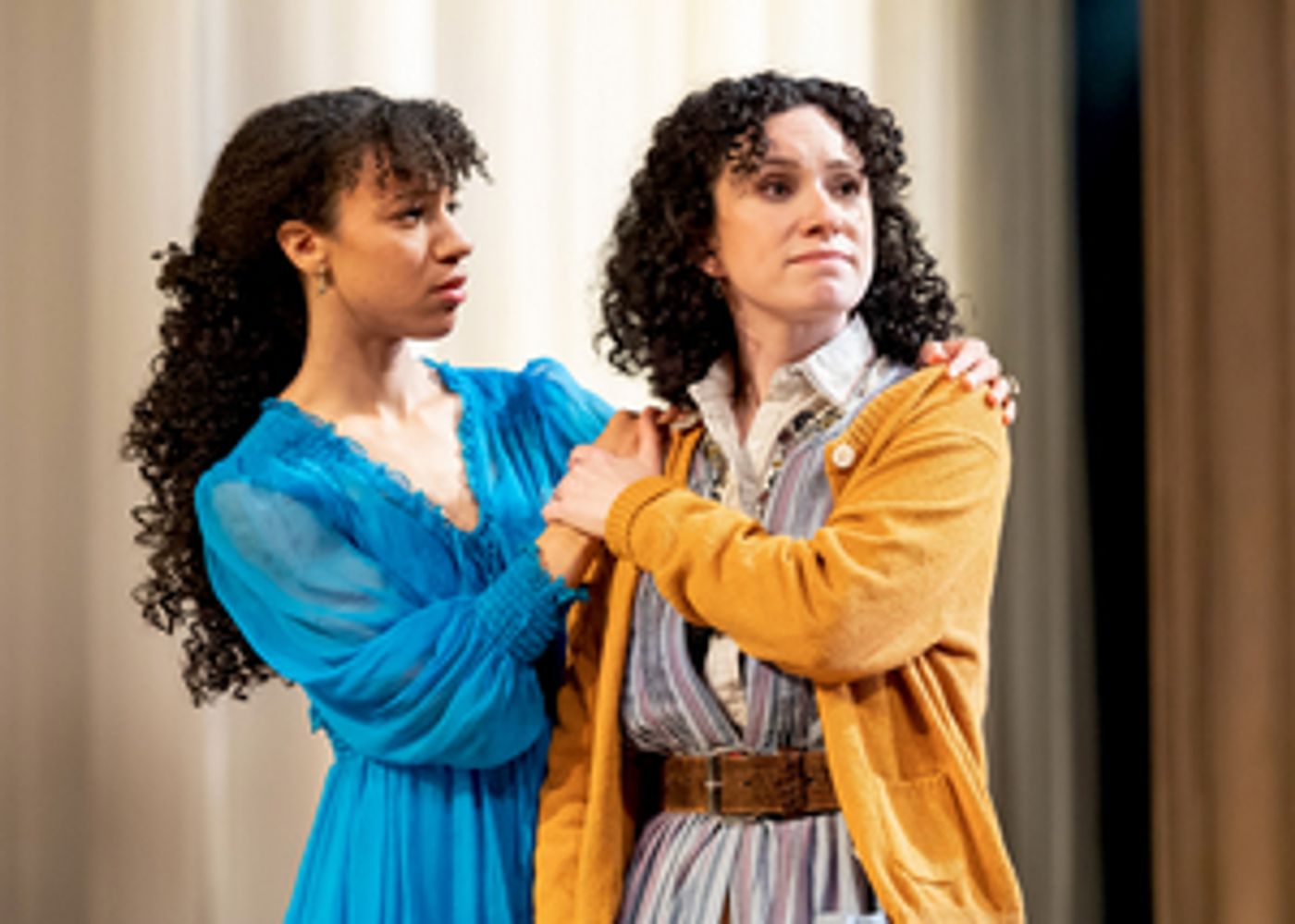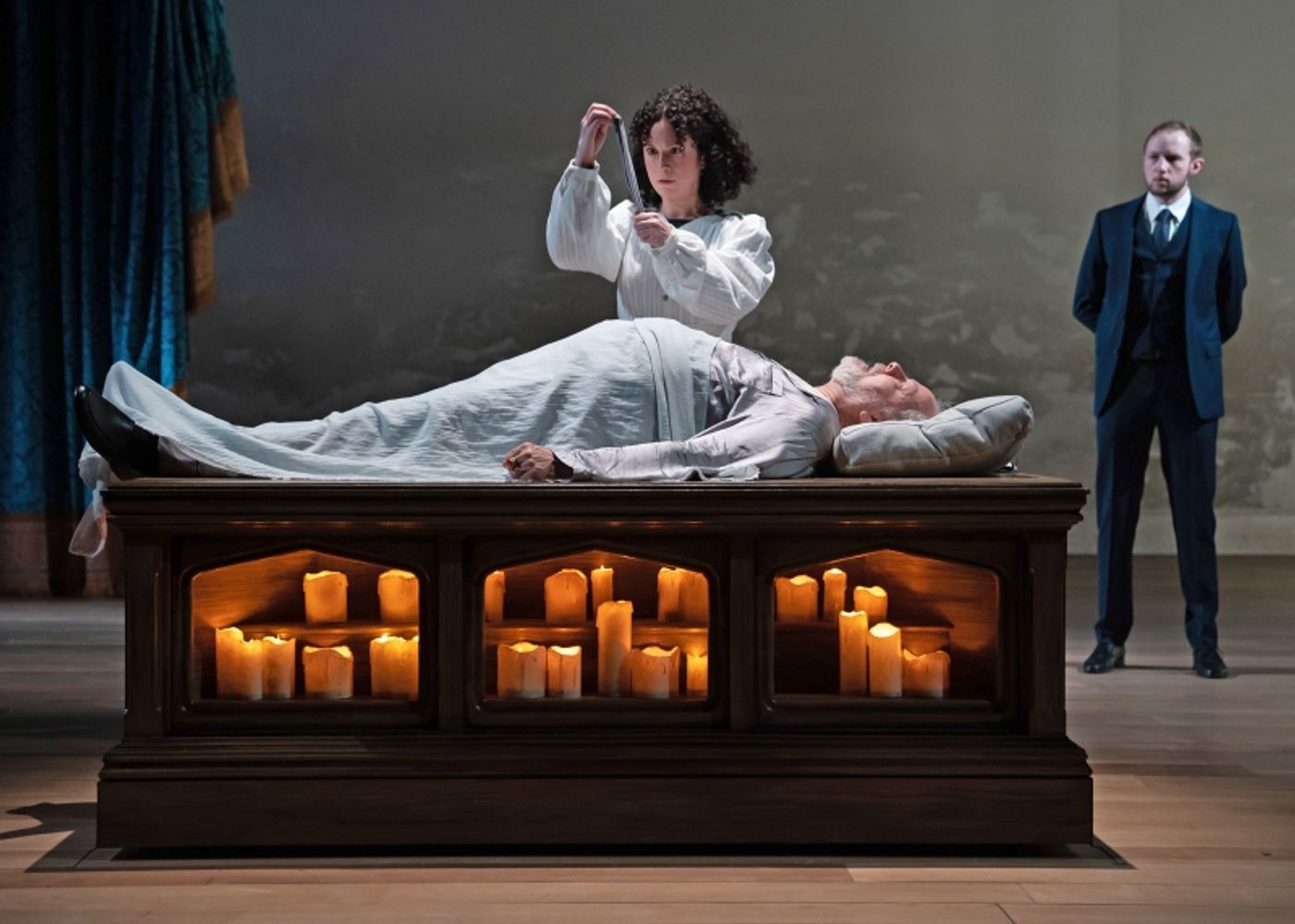Review: ALL'S WELL THAT ENDS WELL at Chicago Shakespeare Theater
Director Shana Cooper's production runs through May 29, 2022

In the Shakespearean canon, ALL'S WELL THAT ENDS WELL defies categorization; it doesn't neatly fit alongside Shakespeare's comedies, tragedies, or history plays. Instead, it's historically been referred to as a "problem" play. Director Shana Cooper's current production at Chicago Shakespeare Theater mirrors the liminal nature of the material. Cooper's direction lacks cohesion, incorporating a variety of different elements into the production. The time period for Cooper's ALL'S WELL isn't even specifically defined- a note in the program says it's "Bohemian-Edwardian." It might well be that Cooper's intent was to mirror the transitional identity of the play and its characters in the staging, but the pieces don't all add up.
That said, I was particularly struck watching ALL'S WELL THAT ENDS WELL by the central theme of agency and the fact that the female characters in this play possess a remarkable sense of agency that we see in few other Shakespeare plays. Most notably, the female protagonist Helen seems like a foil for Katerina in THE TAMING OF THE SHREW. While Helen resides in a rigid French society that does not grant her much agency, she's able to take back some of that power. Alejandra Escalante's likable performance as Helen in this production brings that concept of agency centerstage. She pines for Bertram (Dante Jemmott), though he's notably above her station. And while Bertam openly defies her interest, his mother the Countess of Rossillion (Ora Jones, regal and poised) has a particular fondness for Helen; Helen's recently deceased father was a physician who treated the Countess and her late husband.
Neither the play nor this specific production provide much context for Helen's enduring affection for Bertram. While Escalante fully inhabits Helen's unrequited desire, Jemmott has a rather flat take on the role. He delivers most of his lines with the same neutral affect, and thus, his Bertam comes across as petulant and unable to clearly express his emotions. It's not entirely clear why Helen would be so enchanted with him, even though Escalante's performance indicates her willingness to do whatever it takes to be with him.
Accordingly, Helen embarks on a mission to cure the King of France (Fran Guinan, doing his  well-trod interpretation of a wacky, stubborn, sickly royal) using her late father's remedies. For the course of treatment, Cooper works with magic designer Dendy to create a brief illusion act for Helen to perform. Using a trick of light, she quite literally conjures the King's illness out of his body in a shaman-like ceremony. While it's whimsical, and it underscores that Helen indeed has skill of her own and not just her father's prescriptions at her disposal, this kind of magic never appears again in the production. It's an intriguing concept, but I would have liked to see the special effects carried through in other parts of the show.
well-trod interpretation of a wacky, stubborn, sickly royal) using her late father's remedies. For the course of treatment, Cooper works with magic designer Dendy to create a brief illusion act for Helen to perform. Using a trick of light, she quite literally conjures the King's illness out of his body in a shaman-like ceremony. While it's whimsical, and it underscores that Helen indeed has skill of her own and not just her father's prescriptions at her disposal, this kind of magic never appears again in the production. It's an intriguing concept, but I would have liked to see the special effects carried through in other parts of the show.
In curing the King, Helen wins Bertram's hand in return. But Bertram quickly flees for the wars in Italy, telling Helen that he will only fulfill his husbandly duties after she carries his child and wears his family ring-though he refuses to consummate the marriage. Bertram embarks for Italy and Helen heads off on a pilgrimage in the hopes that he will return safely to France, presuming her dead. Once in Italy, Helen conspires with Diana (Emma Ladji), the object of Bertram's affection, on a scheme that will undo her husband's seemingly impossible demands. The production displays a great affection between Helen and Diana, who Ladji also portrays as a strong-willed woman outraged at Bertram's presumptuousness. It could be my interpretation of the text itself viewed through a 2022 lens, but the theme of female empowerment rings clear. In a society in which women lack agency, Helen and Diana seem determined to take back as much power as they can-and Escalante's poised but cunning delivery of Helen's lines, along with Ladji's playful but fierce portrayal of Diana, underscores that notion.
Of course, as this is a Shakespeare play, the central conflict between Helen and Bertram is just one narrative thread. And likewise, its staging is just one of many ideas that Cooper throws at the production. Andrew Boyce's set has a timelessness that makes it hard to place; the stage is largely bare, with a wooden floor upon which various set pieces emerge from underneath. The backdrop switches between peacock blue curtains, representing the upper echelons of French society, and a wilderness backdrop with greenery to convey the chaos of war in Italy. Even the set design is transitional. Likewise, Raquel Barreto's costume designs aren't rooted in one particular period; the garments are perhaps evocative of the 1940s. The costumes are not modern or traditional Shakespearen, but the clothing doesn't necessarily tie into any one historical period.
Cooper also incorporates her signature use of movement into ALL'S WELL. While the movement patterns intrigue and add whimsy to the production, they aren't incorporated alongside the dialogue. I did, however, find the movement patterns of Bertram and his fellow soldiers particularly charming. Likewise, the actors portraying the soldiers add some fun to the production. As the First Soldier, Jeff Kurysz has a lighthearted and forceful presence, particularly as he spars with Bertram's foolish attendant Parolles (Mark Bedard, who has expert command of Shakespeare's language and fully understands the assignment of playing the fool).
While this production of ALL'S WELL doesn't emphasize the darker elements of the play, I didn't think this production was especially humorous or rife with merriment. The majority of the actors have great command over Shakespeare's text, but some of the performances felt overly formal and too finely rehearsed. As a result, I think some of the capacity for emotion in the material was lost. All told, I think this ALL'S WELL takes the play's theme of transitions a little too literally; Cooper's vision for the production remains murky, and I think there was yet more emotional probing of the character arcs.
ALL'S WELL THAT ENDS WELL plays the Courtyard Theater at Chicago Shakespeare Theater on Navy Pier, 600 East Grand Avenue, through May 29, 2022. Tickets are $49-$90. Visit ChicagoShakes.com.
Photo Credit: Liz Lauren
Review by Rachel Weinberg
Reader Reviews
Videos

